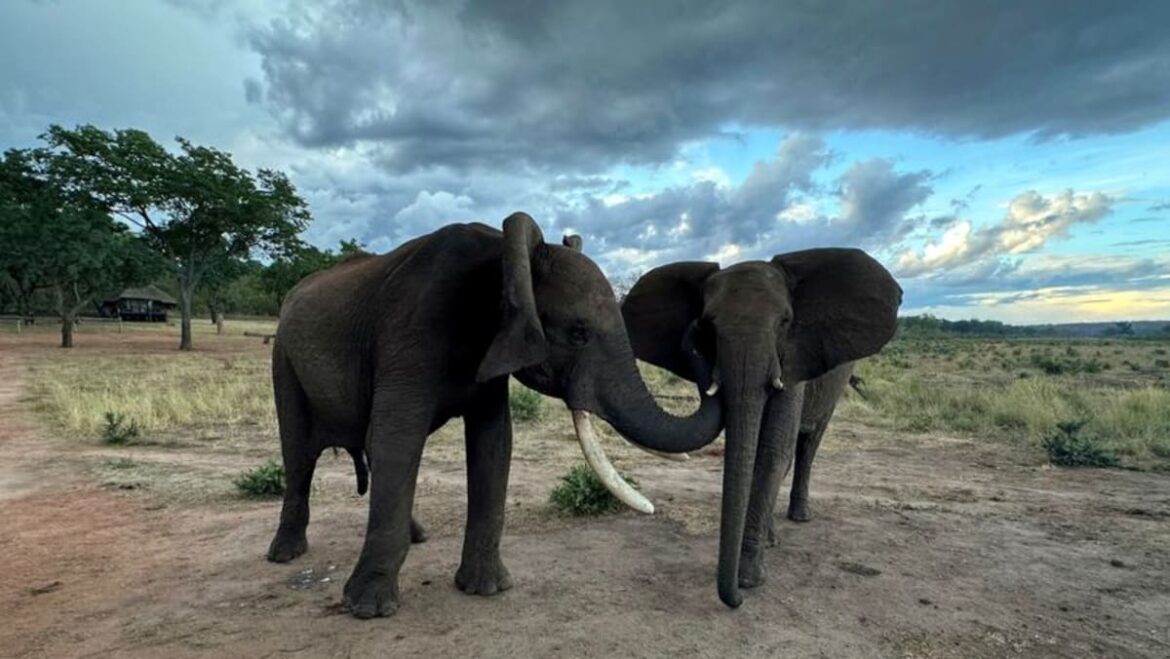For elephants, like people, greetings are a complicated affair
Folks greet every other in a vary of how. They might jabber “howdy,” “guten label,” “hola,” “konnichiwa” or “g’day.” They might shake fingers, bump fists, produce a fist-and-palm gesture or press their fingers on the side of a delicate head bow. They might kiss on the cheek or hand. And they’ll furthermore honest give a nice unprecedented hug.
For elephants, greetings appear to be a within the same arrangement advanced affair. A seek in step with observations of African savannah elephants within the Jafuta Reserve in Zimbabwe affords modern perception into the visual, acoustic and tactile gestures they use in greetings, including how greetings vary looking out on elements corresponding to their intercourse and whether or now not they’re having a seek at every other.
“Elephants are living in a so-called ‘fission-fusion’ society, where they in most cases separate and reunite, meeting after hours, days or months aside,” said cognitive and behavioral biologist Vesta Eleuteri of the College of Vienna in Austria, lead creator of the seek printed this month within the journal Communications Biology.
Elephants, Earth’s largest land animals, are extremely energetic, with eager memory and accomplishing-solving abilities and advanced dialog.
Female elephants of diversified household groups might maybe presumably want solid social bonds with every other, forming “bond groups.” Old study within the wild reported that once these groups meet, the elephants have interaction in clarify greeting ceremonies to advertise and pork up their social bond, Eleuteri said.
Male elephants have weaker social bonds, and their greetings might maybe furthermore honest function extra to ease imaginable “volatile reunions” – a hostile interaction. They greet primarily by smelling every other, reaching with their trunks, Eleuteri added.
The seek detailed around 20 gesture sorts displayed for the length of greetings, showing that elephants combine these in explicit ways with call sorts corresponding to rumbles, roars and trumpets. It also printed how smell plays a vital role in greetings, in most cases spirited urination, defecation and secretions from a determined elephant gland.
Elephants might maybe furthermore honest greet by making gestures intended to be seen, like spreading the ears or showing their rump, or with gestures producing determined sounds like flapping the ears ahead, or with tactile gestures spirited touching the quite a couple of elephant.
“We came upon that they opt out these visual, acoustic and tactile gestures by bearing in mind whether or now not their greeting accomplice modified into having a seek at them or now not, suggesting they’re responsive to others’ visual perspectives. They most well-hottest the utilization of visual gestures when their accomplice modified into having a seek at them, whereas tactile ones when they were now not,” Eleuteri said.
Greeting habits has been studied in a vogue of animals.
“Many other species greet, including diversified primates, hyenas and canines,” Eleuteri said. “Animal greetings lend a hand mediate social interactions by, for instance, reducing stress and averting warfare, by reaffirming gift social bonds, and by setting up dominance site the utilization of diversified behaviors.”
The modern study constructed on old study of elephant greeting habits. The nine seen elephants – four females and 5 males – were “semi-captive,” freely roaming their natural atmosphere for the length of sunlight hours and saved in stables at night.
Greetings frail by the female elephants closely matched the habits of wild elephants. The greeting habits of the male elephants looked as if it would vary from their wild counterparts. Wild male elephants have a tendency to be solitary, forming free associations with other elephants.
The temporal gland, halfway between the eye and the ear, secretes a substance called temporin containing chemical data about an elephant’s identity or emotional and sexual recount. Elephants in most cases utilize their trunks to strive the temporal glands of others.
“The urine and feces of elephants also have chemical data crucial for elephants, just like the identity of the actual particular person, their reproductive recount and even their emotional recount,” Eleuteri said.
“Elephants might maybe presumably defecate or urinate for the length of greetings to birth this crucial data. But another option is that they grasp this due to the the pleasure of seeing every other. Nevertheless the incontrovertible truth that the elephants in most cases moved their tails to the aspect or waggled their tails when urinating and defecating suggests they’ll furthermore very successfully be spirited the recipients to smell them. Perchance they don’t must advise every other how they’re doing, as they’ll smell it,” Eleuteri added.
Source: Reuters


